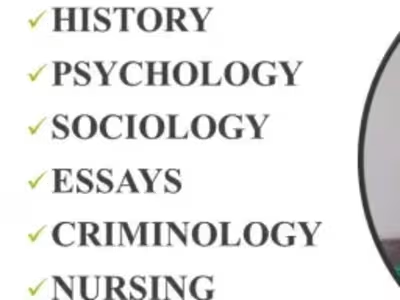Ethical Decision-Making Process
Ethical Decision- Making Process
Scenario Modification
Sarah, a 35-year-old Hispanic woman who works as a waitress, strives to provide for herself and her aged mother. The financial burden, which was worsened by the recent loss of her father, has caused her to be overwhelmed with anxiety. Getting a cleaning professional to replace the counseling fee appeals to Sarah when she figures out she cannot afford the conventional counter-pay when hiring for consultancy. This proposal not only underscores her determination to seek help despite financial constraints but also reflects her resourcefulness and commitment to addressing her mental health needs.
Ethical Decision-Making Model
According to Knapp, et al., (2024), the ethical decision-making approach provides a comprehensive structure that considers the interconnectedness of moral values, professional standards of conduct, and cultural differences in counseling practice. Through this model, counselors have a tool to work through tough ethical dilemmas, like Sarah's predicament, thoughtfully and wisely. Such a strategy sets out the idea that the moral code is essential and local cultural peculiarities and specially made plans for the client are also crucial. This integration aids counselors in making informed decisions, demonstrating counseling ethics, and respecting the client's welfare.
Importance of Using an Ethical Decision-Making Model
Ethical decision-making models are vital in counseling practice because the models provide counselors with a systematic and organized method to solve moral dilemmas. The model provides a guide counselors can use to make ethical judgments and stick with their professional standards and ethics. In addition, it ensures clients' safety and welfare and mirrors the counseling profession (Guidolin et al., 2022), In addition, using an ethical decision-making framework increases openness, accountability, and credibility in the therapeutic relationship, bringing about better treatment quality and an ethical ethos of counseling.
Step-by-Step Approach
1. Identify the Problem
The ethical question remains whether it is reasonable to trade Sarah's professional cleaning skills for her counseling sessions. This circumstance, however, is a severe moral dilemma as it involves balancing Sarah's financial situation versus professional boundaries and integrity. By accepting her offer, Sarah's immediate economic problems may be solved for now, but this also opens up the portals of exploitation, violation of boundaries, and impairment of the therapeutic relationship (Zeanah et al., 2023). The decision then comes down to carefully weighing such considerations to ensure that the counselor acts in good faith and meets ethical standards for the client's well-being.
2. Apply Ethical Principles and Codes of Conduct
When evaluating Sarah's plan, referring to ethics according to the ACA Code of Ethics, which provides principles, is essential. These principles are meant to protect clients from exploitation, and they should ensure that any transaction for the product or service payments will not negatively affect the client (NATIONAL BOARD FOR CERTIFIED COUNSELORS, INC., 2023). Proper care for Sarah is fundamental since the principles of beneficence and non-maleficence and practicing professional ethics are necessary. However, ethical judgment guarantees that counselors have the standards required in mind, ultimately producing quality care that corresponds to those standards for Sarah.
3. Gather Information and Understand the Context
To successfully adapt Sarah's proposal, it's fundamental to acquire detailed knowledge about her financial circumstances, reasons, and other possible effects on the therapy relationship. Sarah's financial status can be examined by looking at the nature of her financial pressure, the sources of aid at her disposal, and whether her other alternatives for payment are available to her. Besides that, revealing her reasoning for providing cleaning service may help in understanding her ideals, attitudes, and money reluctance. Moreover, assessing how it can affect the therapeutic relationship involves looking at dynamics such as power differentials, boundaries, and the maintenance of a client-centered focus. The insight into the whole situation helps the counselors to grasp the situation better and subsequently make decisions that are beneficial to Sarah while respecting the ethical standards
4. Speak with coworkers or superiors
It is highly beneficial to fill in the gaps in our information regarding Sarah's project by speaking with our supervisors, colleagues, or ethical committees. Working together in this way opens doors to other perspectives, moral advice, and professional enlightenment. It guides counselors in making well-informed choices while remaining in tandem with the given ethical standards and trends in counseling.
5. Consider Potential Courses of Action
Considering alternative actions signals a deliberate process based on ethical frameworks and the application of good counseling practices. Taking on the position offered in Sarah's project must provide parameters to prevent exploitation and guarantee that the transaction follows ethical principles. Alternatively, turning down the offer and then holistically looking for other payment methods shows her that you are considering her financial burden while still following the ethical code. Engaging in open dialogue with Sarah will enable us to find a cooperative way to respect her autonomy and ensure that any decision made will not conflict with the ethical principles and serve her needs.
6. Make a Decision:
The proper decision process should be based on the ethics, guidelines of professionals, and Sara's mental health. Tracing the implications of each alternative and deciding which is the ethical option in light of the ACA Code of Ethics and other standards is the central task in this process. The choice that I made must protect the dignity of the counseling profession by ensuring ethical boundaries and the complete absence of self-serving actions that could interfere with the core values of therapy (NATIONAL BOARD FOR CERTIFIED COUNSELORS, INC., 2023). However, the responsibility should be assigned to Sarah, considering her autonomy, cultural values, and therapeutic goals. A counselor giving ethics priority to these values is better positioned to practice ethically and give Sarah the needed attention during this process.
7. Implement the Decision and Monitor Effects
Implementing that decision requires Sarah to make all things clear while also articulating the reason behind the decided option to sustain trust and understating. Frequent observation of the effects of the decision on the therapeutic relationship becomes crucial for an evaluation of Sarah's condition and the dynamics of therapy. Staying alert is one of a person's most essential traits because it allows for detecting a dire situation right on time, even if challenging (Guidolin et al., 2022), This can be achieved by working on everyone's active participation and consistent monitoring of outcomes to ensure that the decision coincides with Sarah's needs and provides a therapeutic environment where she can grow and improve as well.
Conclusion
Conclusively, by using the ethical decision-making model proposed by Knapp et al., (2024), counselors can get through Sarah's situation, putting her well-being first while being guided by professional ethics. Instruction of this nature encourages integral consideration, ethical manifestation, and teamwork with coworkers, and open dialogue with Sarah. This process holds the counseling profession to a higher standard and establishes a therapeutic environment where counselors and clients can rely on each other and achieve their goals. Incorporating ethical considerations into her propitious counseling guides Sarah's well-being and lays the groundwork for ethical counseling principles, resulting in a resilient and fruitful therapeutic encounter.
References
Guidolin, K., Catton, J., Rubin, B., Bell, J., Marangos, J., Munro-Heesters, A., ... & Quereshy, F. (2022). Ethical decision making during a healthcare crisis: a resource allocation framework and tool. Journal of medical ethics, 48(8), 504-509. https://doi.org/10.1136/medethics-2021-107255
Knapp, S., Fingerhut, R., Gottlieb, M. C., & Handelsman, M. M. (2024). What are the primary ethical considerations of evidence-based practice and practice-based evidence?.
NATIONAL BOARD FOR CERTIFIED COUNSELORS, INC. (2023), CODE OF ETHICS; https://aspirace.com/wp-content/uploads/2023/07/Counselor-Ethcis-Revised-2023-NBCC-and-ACA-Code-of-Ethics.pdf
Zeanah, P. D., Steier, A., Lim, I., Korfmacher, J., & Zeanah, C. H. (2023). Current approaches and future directions for addressing ethics in infant and early childhood mental health. Infant Mental Health Journal, 44(5), 625-637.
Like this project
Posted May 10, 2024
Ethical decision-making process in counseling: problem identification, principle application, collaboration, and monitoring.
Likes
0
Views
1




